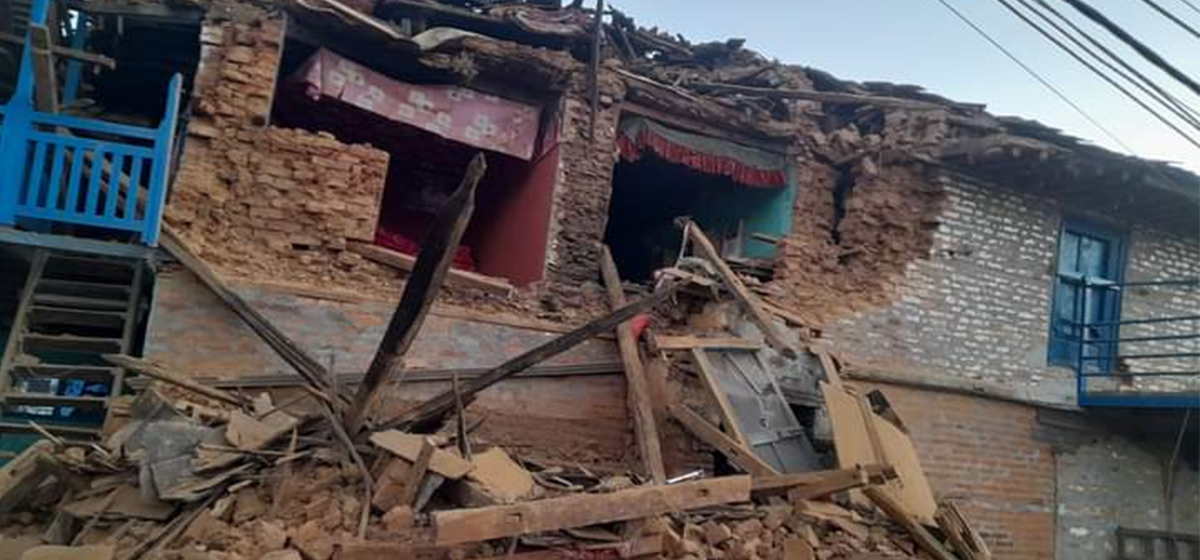Only 264 have received such loans so far
KATHMANDU, May 1: Of the around 800,000 people who lost their homes in the devastating earthquakes of 2015, only 264 households have acquired loans from bank and financial institutions (BFIs) so far at a subsidized interest rate.
Immediately after the earthquake, the Nepal Rastra Bank (NRB) had announced a house loan scheme under which earthquake survivors, who lost their homes, would be able to obtain loan at two percent interest rate.
Under the scheme, the central bank provides refinancing facility to BFIs at zero percent interest. BFIs will have to float housing loans of up to Rs 2.5 million in urban areas and Rs 1.5 million in rural areas at interest rate no more than 2 percent.
According to the central bank, 264 earthquake survivors, who had lost their homes, have borrowed a total of Rs 526.2 million in housing loan at concessional interest rate of 2 percent.
Despite availability of such a cheap housing loan, very few earthquake survivors have received such concessional loans. While quake survivors have been complaining that cumbersome borrowing process and documentation requirement to get loans was discouraging them, bankers say they must follow banking rules while floating loans.
“This scheme is not distribution of grants. This is lending, so earthquake victims have to follow the process and meet certain criteria. We extend loans from the money we get as deposits. So, we have to see whether the depositor's money that we extend as loans can be recovered from the borrowers,” Krishna Raj Lamichhane, president of Development Bankers Association, Nepal (DBAN), told Republica. “We float loans to all eligible borrowers.”
According to Lamichhane, there has not been much turnout of earthquake survivors to get subsidized housing loans. “Even our development bank has received only three applications for such loans. And most of the applications are in urban areas,” he added.
Many bankers also attribute the discrepancy between the refinancing period and loan maturity period to their reluctance to float loans under the scheme. “While housing loan has a maturity of up to 15 years, the refinancing period has a maturity period of only one year with an extension of some months. This also put many banks in a difficult position,” said a banker, requesting anonymity.
Subsidized housing loan for quake survivors to be scrapped from...


































